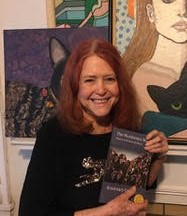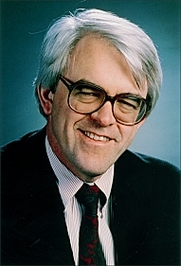A Quote by Larry L. King
The best kind of writing, and the biggest thrill in writing,
is to suddenly read a line from your typewriter that you
didnt know was in you.
Related Quotes
When you get the ideas, that's a thrill; when you're writing the book and it's corning out well, that's a thrill; when you finish it and other people read it, that's a thrill. There are going to be reviews, of course; not everyone's going to love it. You feel sort of naked and vulnerable in a way. That's just a minor part of the process, really. If you can't take that part, you shouldn't be in the business. But there are so many joys to writing.
For me writing is a long, hard, painful process, but it is addictive, a pleasure that I seek out actively. My advice to young writers is this: Read a lot. Read to find out what past writers have done. Then write about what you know. Write about your school, your class, about your teachers, your family. That's what I did. Each writer must find his or her own kind of voice. Finally, you have to keep on writing.
I have friends who are capable of writing a very rough draft and then going back and embroidering - they're sort of the cathedral builders of fiction. I never really know what I'm doing, and all my pleasure's on the level of the line. It's a weird way to move forward. It's kind of like a way to caterpillar your way through these great woods. The best ones, whatever I feel like I'm writing about, some other secret thing will begin to come into focus.
One night a friend lent me a book of short stories by Franz Kafka. I went back to the pension where I was staying and began to read The Metamorphosis. The first line almost knocked me off the bed. I was so surprised. The first line reads, “As Gregor Samsa awoke that morning from uneasy dreams, he found himself transformed in his bed into a gigantic insect. . . .” When I read the line I thought to myself that I didn’t know anyone was allowed to write things like that. If I had known, I would have started writing a long time ago. So I immediately started writing short stories.
You honor your writing space by recovering, if you are an addict. You honor your writing space by becoming an anxiety expert, a real pro at mindfulness and personal calming. You honor your writing space by affirming that you matter, that your writing life matters, and that your current writing project matters. You honor your writing space by entering it with this mantra: “I am ready to work.” You enter, grow quiet, and vanish into your writing.







































